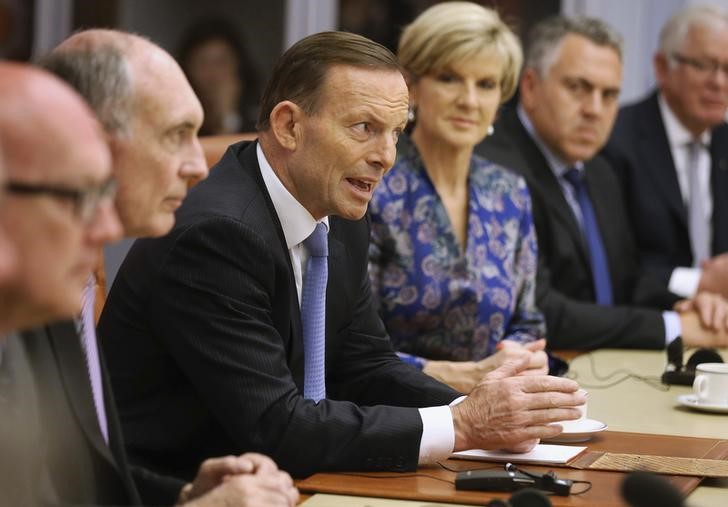By Matt Siegel
SYDNEY (Reuters) - The embattled premier of Australia's Queensland state on Tuesday called a snap election amid fears that Prime Minister Tony Abbott's toxic poll numbers may be eroding his party's grip at the local level and endangering his political survival.
State governments do not choose the prime minister, but a string of losses in local contests can shake confidence in a leader, signalling a looming election loss or a party coup aimed at averting one.
Abbott's first full year in office was hobbled by missteps and a souring economy that has driven his approval ratings to historic lows.
"I do wonder if in a sense some of the state elections are illustrative of buyer's remorse on behalf of the Australian public," said Peter Chen, a lecturer in politics at the University of Sydney.
Abbott's unpopularity appears to have accelerated a trend in which state governments change hands en masse ahead of a change in the federal government, Chen told Reuters.
Queensland premier Campbell Newman's call for a poll on Jan. 31 follows a thrashing for Abbott's Liberal-National coalition in state elections in Victoria and a by-election that handed government in South Australia to the opposition Labor Party.
Those events have fed fears that Newman, elected in 2012 with a whopping 78 of the 89 seats in the legislative assembly, may be the next target of voters looking to vent anger against Abbott.
Newman's decision to call the election during parliament's summer break shows a worrying lack of confidence in Abbott's ability to turn things around, Chen said.
Australia, the world's biggest exporter of iron ore and coal, has been battered by a worldwide fall in commodity prices, but voters have never accepted Abbott's plan to fight back with deregulation measures, new levies and cuts in spending.
Voter anger, which helped the federal Labor Party surge past the government by a margin of 8 percentage points in the latest Newspoll, on Dec. 15, is becoming a major issue.
Newman's popularity has plummeted since his landmark victory, and in the final tally there will be no way to separate voter anger at state and federal levels, said Clive Bean, a professor of political science at the University of Queensland.
Politicians will watch the results in Queensland and later in New South Wales, Australia's most populous state, Bean said.

"They do give you a sense of what voters are thinking and how that might then translate into a result at the national level," he said.
(Reporting by Matt Siegel; Editing by Clarence Fernandez)